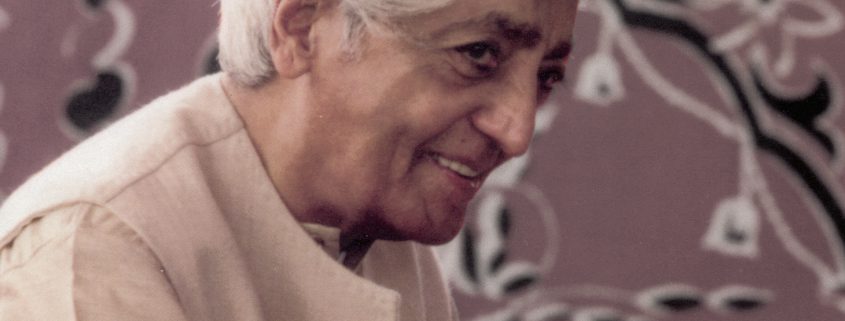The Ending of Time, July 22 – 25, 2021
The Ending of Time
July 22 – 25, 2021
Zoom Online
This four-part workshop was presented by Mukesh Gupta from Varanasi, India, over four days. The focus of inquiry was the text The Ending of Time, a collection of conversations between J. Krishnamurti and renowned physicist Davi Bohm in which they explore in a number of meetings the possibility and importance of ending psychological time or ending the effort to become something one is not. Including the facilitator and staff, the event was attended by nineteen people.
Mukesh began by introducing the book and the relationship between Krishnamurti and David Bohm. He also explained that the material discussed in the text was very challenging and demanding, perhaps likely to bring students to a point of “not-knowing” or feeling unable to move in any direction towards meaningful answers to the questions raised by the two dialoguers. This, he said, may not be a bad thing at all. Mukesh made it clear that he is always learning about these deep issues and is not to be considered an authority.
The first question raised in the text is whether mankind at some point made a mistake in its understanding of life and has been suffering ever since from the results of it. After some inquiry, it was seen that the origin of the problem may not be so important but, rather, the mistake that thought is making every time it conceives of life, the world, and the self in terms of duality and separateness. The mistaken belief that we are all separate from each other and from the world Is the basis for our psychological suffering. This is not rational thinking; it creates division and conflict in all areas of life. K, David Bohm, Mukesh, and presumably the rest of us, are asking whether this false division in our thinking can be seen clearly and thereby dissolved. Thought could then take its right place in our lives.
Over the four days of the workshop a number of interrelated questions and issues were explored in addressing the core issue of going beyond the psychological self and its constructs or beliefs. Can there be an understanding or insight into the nature of thought and from that a living in freedom from fear and conflict? This was explored from different angles in smaller groups and the whole group together. And then there was the question raised by K and Bohm as to whether there is a “Ground” which is beyond the self and even beyond the ‘universal mind”. This seemed to stretch our capacities of comprehension but possibly awakened a sense of intensity in the inquiry. Can there be a depth and intensity of listening to another and to oneself that can open a door to that which is beyond the limited egoic self? When thought is silent at its core, then another form of intelligence may be able to act within our daily existence and a flowering of a life without division and conflict may take place. This does not happen through control and effort but, rather, through observation and insight.
It was a very interesting and “hopefully” fruitful exercise in dialogue and inquiry and we thank Mukesh for the dedication required to create such an experience. Thanks also to the participants for joining as co-creators of the happening.

